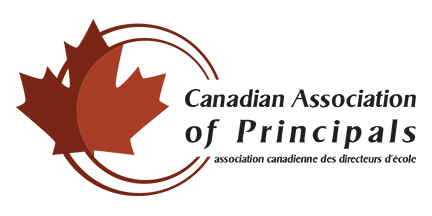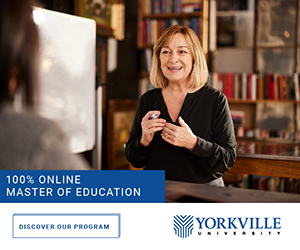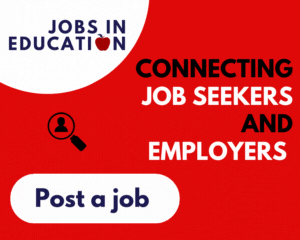The recent Olympic Games brought athletes’ training, dedication, and mental strength into focus. The media attention surrounding these biannual tests of strength often start discussions about elite athletes and the coaches who train them. I believe there are many lessons to be learned from how elite athletes train and how their coaching team supports them, and many of these lessons are applicable in broader discussions of leadership.
I have been involved with sports all my life: both as an athlete and then as a national coach. In my career as a schoolteacher and then teaching educational leadership in higher education, I have often used examples from my coaching experiences to demonstrate crucial aspects of leadership and being a leader. My use of these experiences led me to ponder a series of questions: What can be learned from elite athletes and how can this be applied to educational leadership to benefit leaders? What would the infusion of elite athlete training into educational leadership development look like? What could happen if we trained emerging and existing educational leaders like elite Olympic athletes? I talked with many athletes and coaches who train elite athletes in both individual and team sports to hear their thoughts. Through their collective responses, I gained many insights and identified some potential directions for leaders. I share these insights and directions below.
First, it’s important to understand what makes an elite athlete and what separates them from other athletes. Words such as dedication, effort, self-awareness, resilience, and teamwork frequently came up in discussion. Although elite athletes are also known to have a tremendous amount of natural talent, they cannot and do not rely on talent alone. Their talent must be combined with other unique qualities, such as fitness, skill, mindset, and disposition; when all these qualities are combined, you have the recipe for a successful elite athlete. Moreover, being an elite athlete is a full-time job. Many athletes who have been interviewed about their training regimen stated that they train for 5 to 6 hours each day, 6 days per week. For example, Tessa Virtue, three-time Olympic figure skating champion, described her 2 decade-long, mostly 9-hour-a-day training schedule: 4 hours of on-ice practice, plus at least 1.5 hours of strength training, then additional hours of dance training, sport psychology sessions, media events—and on and on. Is this jam-packed schedule starting to sound familiar to you, school leaders?
The most noticeable aspect about elite athletes is that their self-discipline is off the charts; they’re also highly self-regulated and have a robust self-reflective practice. They are always striving to be better. They train for exact precision in every task down to the last detail and are extremely in tune with every aspect of their mind, body, and soul. They are goal-oriented and relentlessly persevere to achieve them. They are also visionaries who have a “no limits” attitude toward achieving their goals. They will stop at nothing: They understand the necessity of limiting all distractions to allow themselves to be in the required zone, whether it be training or competing. In other words, no time is wasted and superior productivity, effectiveness, and performance on demand are key.
Elite athletes are also prone to a variety of undesirable side effects, including burnout (both physically and emotionally), inability to perform on demand, and being too hard on themselves, which can lead to self-esteem issues. To achieve high standards and minimize negatives, athletes understand they need a knowledgeable team of experts: They assemble a team and surround themselves with positive people. These teams have coaches, doctors, physiotherapists, managers, fitness coaches, sports psychologists, and, depending on the sport, even costume designers, equipment managers, video analysts—the list goes on. Their team’s role is to support them and guide them to always be at their best. The athletes rely heavily on their team to be honest with them, to be their eyes, to provide expert advice, and to keep them performing at peak level.
Most athletes will also admit that they stay in their “bubble” leading up to the Olympic year: avoiding all outside communication
(i.e., media, social media) to stay positive in their training zone with no external influences. Despite having all these measures in place, however, there are disappointing times when extreme mental strength is needed. Not every athlete makes it to competing in the Olympics or winning medals. Things go wrong and Olympic dreams are shattered—sometimes by a millisecond. Elite athletes must be resilient and learn some of their most valuable lessons from failure and disappointment.
The connection between the development of elite athletes and leadership development is the sophisticated athlete identification programs that are in place in sports to identify potential elite athletes early in their careers. Do you have a leadership identification program in your school to help build your school leadership team?
Let’s Make a Plan!
“I really think a champion is defined not by wins but by how they can recover when they fall.”– Serena Williams (Tennis)
Below, I provide a few suggestions to frame your thinking for training and developing your leadership like an elite athlete.
Develop and Sharpen Your Fundamental Skills
“You dream. You plan. You reach. There will be obstacles. There will be doubters. There will be mistakes. But with hard work, with belief, with confidence and trust in yourself and those around you, there are no limits.” – Michael Phelps (Swimming)
Commitment to always being better is what drives an elite athlete. One of the most important parts of becoming a great leader is to honestly assess your own skill level. What are some of these fundamental skills? Make a list and an action plan. If you cannot do this on your own, then build a team that will help you. As well, do not assume or take for granted that you already have excellent fundamental skills. Remember that an elite athlete is on the podium because they never assume: They are always working on being their best and they accept that this is an ongoing journey.
Purposefully break down your fundamental skills and practice them, reflect on them, and see how you can do them better. You should never leave your performance as a leader to chance, which requires you to have that relentless elite athlete drive and consciously make the effort to learn. Find a simple reflection framework for yourself to categorize your skills and practices. For example, the stoplight framework from the National Coach Certification Program:
- green = start doing
- yellow = continue doing
- red = stop doing
Perfect Practice, Perfect Practice, Perfect Practice
“Success is no accident. It is hard work, perseverance, learning, studying, sacrifice and most of all, love of what you are doing or learning to do.” – Edson Arantes do Nascimento (aka Pelé) (Soccer)
We know that reading about leadership and leading are two different things. Eliud Kipchoge, the fastest marathon runner of all time, didn’t read a book on how to run the fastest marathon and then go run one of the fastest times at 1:59:40. Leaders must practice leading just as athletes must practice to perfect their skills. Like elite athletes with intense daily training schedules, Pollock, Wang and Hauseman (2015). recently reported school principals are working an average of 59 hours a week. How do you continue to train and function at your top performance day in and day out? Peter Jensen (2015), a sports psychologist who has worked for many years with elite athletes, argued that it is more about energy management rather than time management. The number of hours in a day has not changed, yet the volume of demands we face has grown. Energy management is within our control and it’s a focus on positive actions for striking a balance between high performance tasks and periods of renewal such as learning to get enough rest and recovery, leveraging our stressors and enjoying and being present in the moment. It’s important to learn how to manage your energy so that you can train throughout each day, day after day, week after week, and year after year while remaining in the ideal training zone without fatigue.
There is more to practice than just practicing. My coach always said, “If you practice something wrong then in the end you have a perfectly practiced wrong skill.” Consequently, my own coaching language changed to include “perfect” practice. Consider the time and effort needed to reverse or change poor habits. Athletes practice for perfection and they have a team to help them: Coaches oversee their development using videos, discussions, feedback, and strategies for perfect performance. The practice is continuous: repeat, repeat, and repeat relentlessly. Over time, the same routine and accumulation practice makes you a better leader. You are performance-ready on demand and show up to perform “perfectly” every day.
Assemble and Develop Your Team
“I get a feeling about where a teammate is going to be. A lot of times, I can turn and pass without even looking” – Wayne Gretzky (Hockey)
In team sports, a proper team is one where everyone works together. The team you assemble will help you build your personal leadership and the team you develop will help you lead. Elite athletes work with their coaches to identify who will help set them up for success. They plan and follow a very prescriptive development plan to make sure they are building the right fundamental techniques at the right time so that the combination, when it all comes together, creates a world-class athlete. It’s the same in leadership: look to assemble and develop a team. Just as elite athletes do not become skilled overnight, your team members may not show up being fully ready to lead. Ask yourself: what is your succession planning for cultivating leaders who will help you? How do you identify potential leaders? Do you have metrics in place, for example, years of experience or educational expertise? And what are you doing to develop leadership within your schools? Considering these questions will help you shift from elite athlete training to becoming a high-performance leader who creates a legacy of success.
Taking Care of Yourself
“Some people want it to happen, some wish it would happen and, others make it happen.” – Michael Jordan (Basketball).
How are you managing yourself and avoiding work (training) fatigue? Are you taking care of yourself with sufficient nutrition, hydration, and rest? These are the most effective strategies for optimizing both sustained job performance and recovery times. If not, you’ll run the risk of compromising your job performance, cognitive abilities, and decision-making skills— a few of the most demanding cognitive skills required in school leadership. Although athletes also need balance, they achieve it by focusing on their need to be able to train effectively and show up to deliver superior performances. Frame your quest for work–life balance in the same way: How can you be leading and showing up to be your best? Sometimes it is as simple as breathing: slowing down your breathing so that you are physiologically telling your body to come out of flight and flight mode, which can drain your energy levels.
Ask yourself the following practical questions to start your leadership training plan:
Do you have a team of experts for every aspect of your leadership, including self-care? Who should be on your team?
Do you know how to perform on demand? Do you have a fatigue management plan? Do you know which tasks are most draining on your energy and how to prioritize them? How are you managing your energy levels?
- Are you able to balance and pace yourself throughout your day and throughout the school year to avoid burnout and fatigue?
- Are you always at your best? Do you have the resilience to always be your best? If not, do you understand why? And know how to address it?
- Are you able to focus on both the small details and the bigger picture to achieve your goals?
- Are you able to limit distractions? Why and why not? And how?
- Do you seek expert advice, support, and feedback from multiple sources/perspectives?
- Do you see yourself leading? Do you record yourself? Do you critique yourself or ask others to critique you?
- Do you have a few inspirational quotes that motivate you and keep you focused?
My intent for writing this article was to provide leaders with a different perspective: training their leadership like an elite athlete. I began with a series of questions to capture what can be learned from elite athletes, their training regime and how this information could be applied to educational leadership to benefit leaders. I hope this article has provided educational leaders with new insights and concrete suggestions to create a developmental, self-directed autonomy for their leadership development by thinking and acting like elite athletes.
ReferencesJensen, P. (2015). Thriving in a 24-7 world: An energizing tale about growing through pressure. iUniverse.
Pollock, K., Wang, F., & Hauseman, C. (2015). Complexity and volume: An inquiry into factors that drive principals’ work. Societies, 5(2), 537 – 565.
AUTHOR BIO:
Patricia Briscoe (She/Her), Associate Professor – Leadership Department, College of Education, Niagara University












